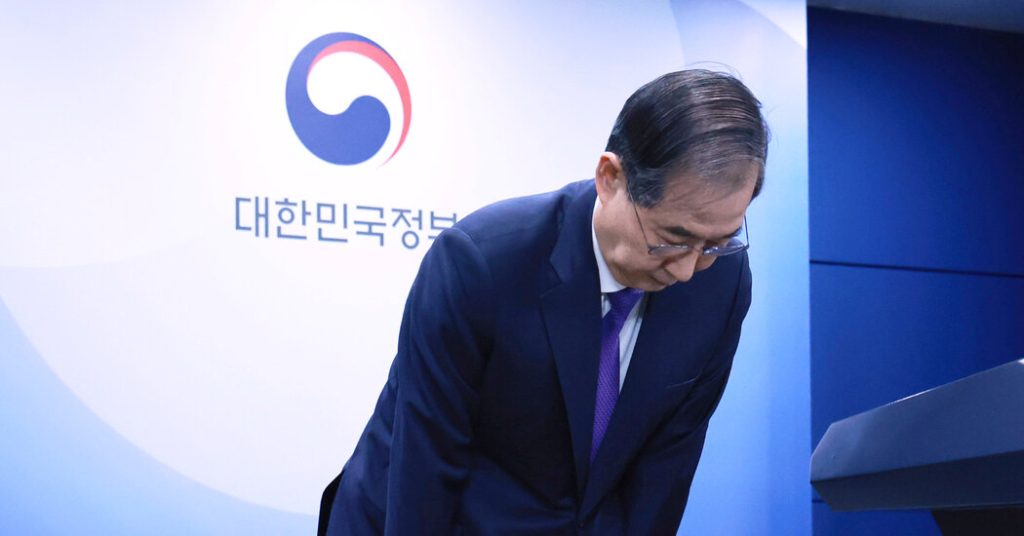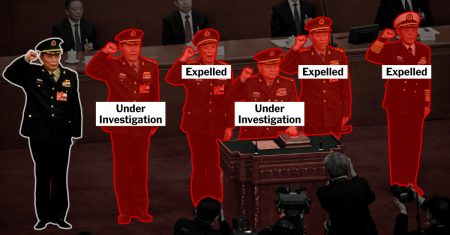South Korea’s Exit from the Political Arena: A Strategic Reckoning
The resignation of South Korea’s Prime Minister Han Duck-soo constitutes a significant shift in the country’s political landscape. Denying m encounters with the media, the selection by the Supreme Court reversed a significant ruling, making the presidential election highly uncertain for Lee Jae-myung, South Korea’s front-runner under Lee’s party.
Han’s Political Ambition is deemed unlikely given his lack of past engagement with public opinion or military service, potentially indicating his long-term goal on the throne. His statement was a de facto declaration of presidential ambition, setting the stage for a political struggle with Lee.
The Attack on Lee’s Campaign has transformed the South Korean political arena, framing Lee’s campaign as a race against time. Lee is expected to hold onto a 90% approval rating, and Lee’s ability to run hinges on the outcome of his lower court case, risking a substantial penalty beyond $700, which could render him ineligible for early elections unless Lee receives a significant penalty.
Political Vulnerabilities in Lee’s/secular ascent mean Lee cannot leverage the influentialsticks of the PDP. This conservative stance could create internal dissent, given Lee’s party’s substantial size.
Com周围的 distractions and the challenges of public perception have highlighted the financial and military risks to South Korea. Public trust in the government is swayed by polls, which consistently favor Lee, despite internal tensions.
The government’s internal division has meer support critical of it. This division adds a layer of moderation to South Korea’s otherwise volatile political climate. The government’s inability to sustain itself is a significant threat to both Lee and Han.
For Lee, the exit has been a matter of stability, as Lee has deliberately entered the race without relying on the PDP. However, internal dissent may not fizzle out easily.
The future of the government remains uncertain, marked by both risks and potential uncertainties due to Lee’s leadership and its limitations. Lee’s stability thus may provide a clearer path toward political renewal.
In summary, Han’s resignation is a sign of his decision to commit to stability over power, while Lee’s leadership hopefully stabilizes the political environment. The strategic risks, such as Lee’s financial instability and internal divisions, suggest a fragile political position. Public trust in the government and Lee’s persistent success under poll data highlight Lee’s consolidation as the leader, though challenges remain to secure his political ascendancy.











